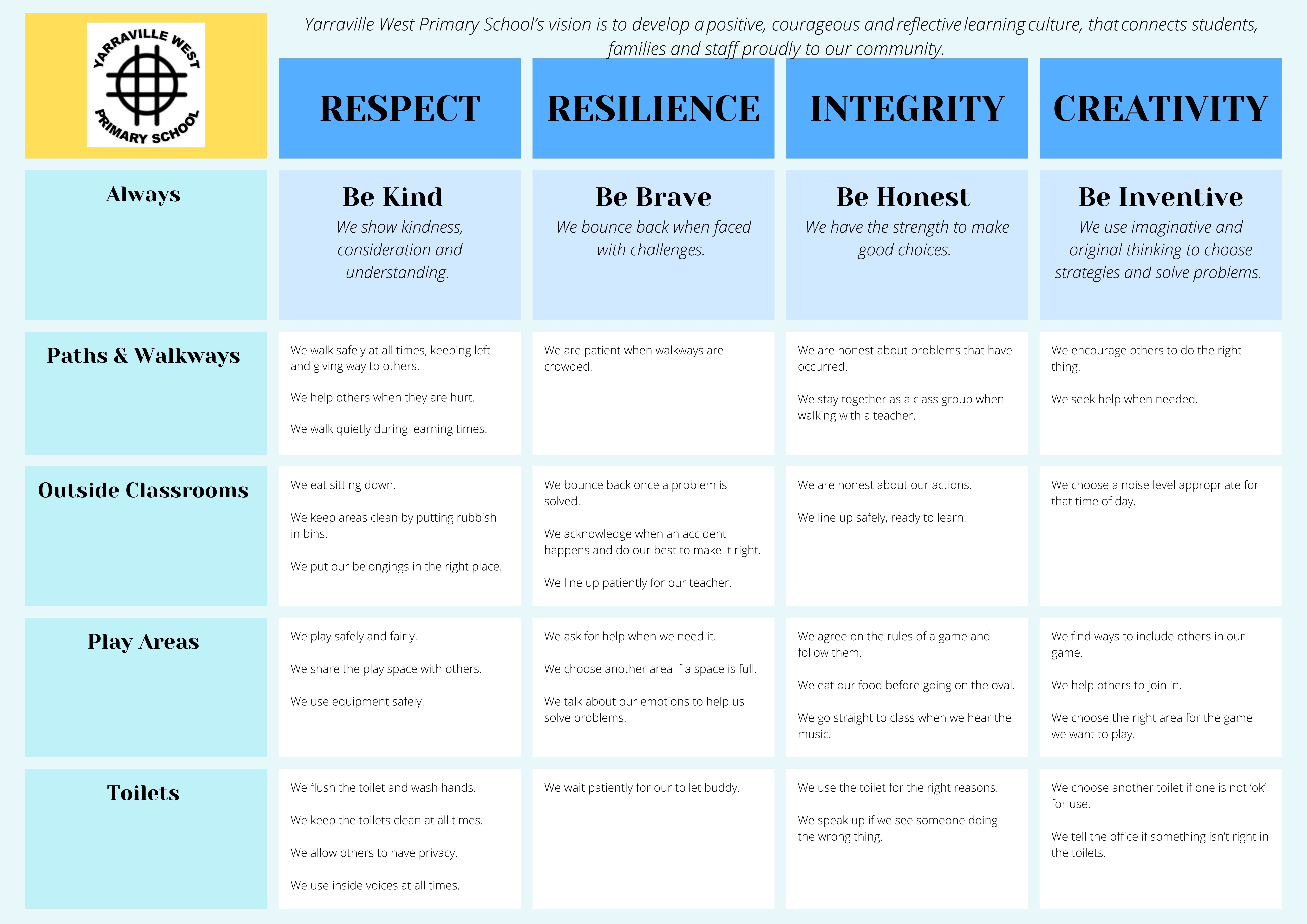School Wide Positive Behaviour Support
School-Wide Positive Behaviour Support
We are beginning to implement School-Wide Positive Behaviour Support or SWPBS.
SWPBS is an evidence-based school improvement framework, designed to help develop safe and respectful school-wide environments, and through this, achieve improved social, emotional, behavioural and academic outcomes for students.
SWPBS supports learning and wellbeing as outlined in the Department of Education Framework for Improving Student Outcomes (FISO 2.0).
We can’t “make” students learn or behave appropriately.
We can create positive learning environments and teach students how to learn and behave appropriately.
Positive Behaviour Matrix
The school-wide matrix of expected behaviours is a key part of the SWPBS. It has been developed in collaboration with staff, students and families, and is displayed throughout the school.
The matrix is underpinned by our school vision and connects to our school values of respect, resilience, integrity and creativity. The statements underneath each value clearly outline the behaviours we expect of our students in different settings around the school. These behaviour expectations are explicitly taught, modelled and reinforced in every classroom and throughout the school.
Teaching, modelling and reinforcing positive social behaviour is a vital part of students’ education. Just as we explicitly teach students the knowledge and strategies students require to achieve academic success, it is equally important for us to empower them with the positive behaviours and social skills they need to be members of our school community. Our matrix provides staff with consistent language to proactively teach students the behaviours we want them to show, acknowledge students when they are making good choices and re-teach behaviours when problems arise.
Every term, each year level focuses on an area of the matrix, based on the needs of the cohort. Teachers unpack the matrix statements with their grade and explicitly teach the expected behaviours, before students are given opportunities to practise the skills in context.

© Yarraville West Primary School
